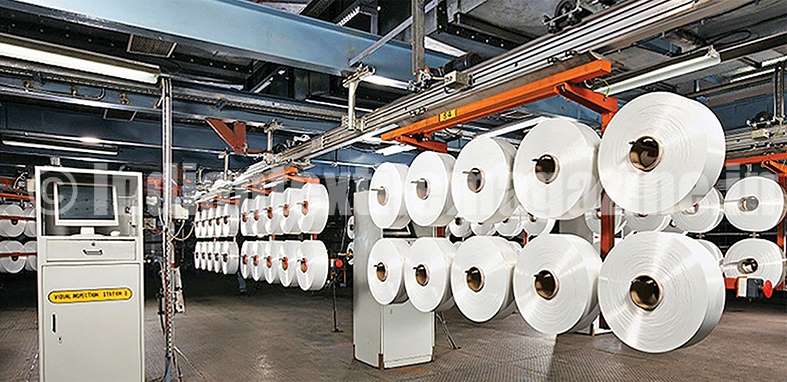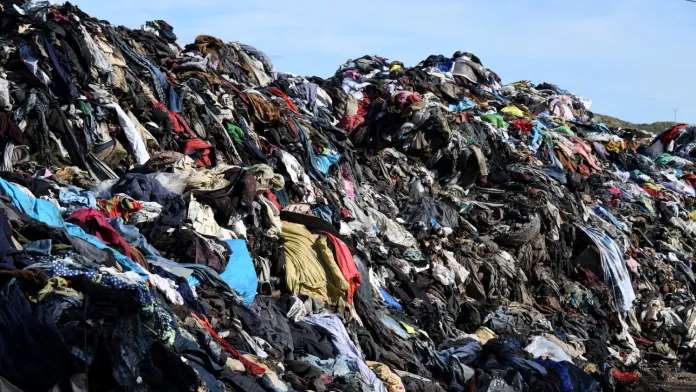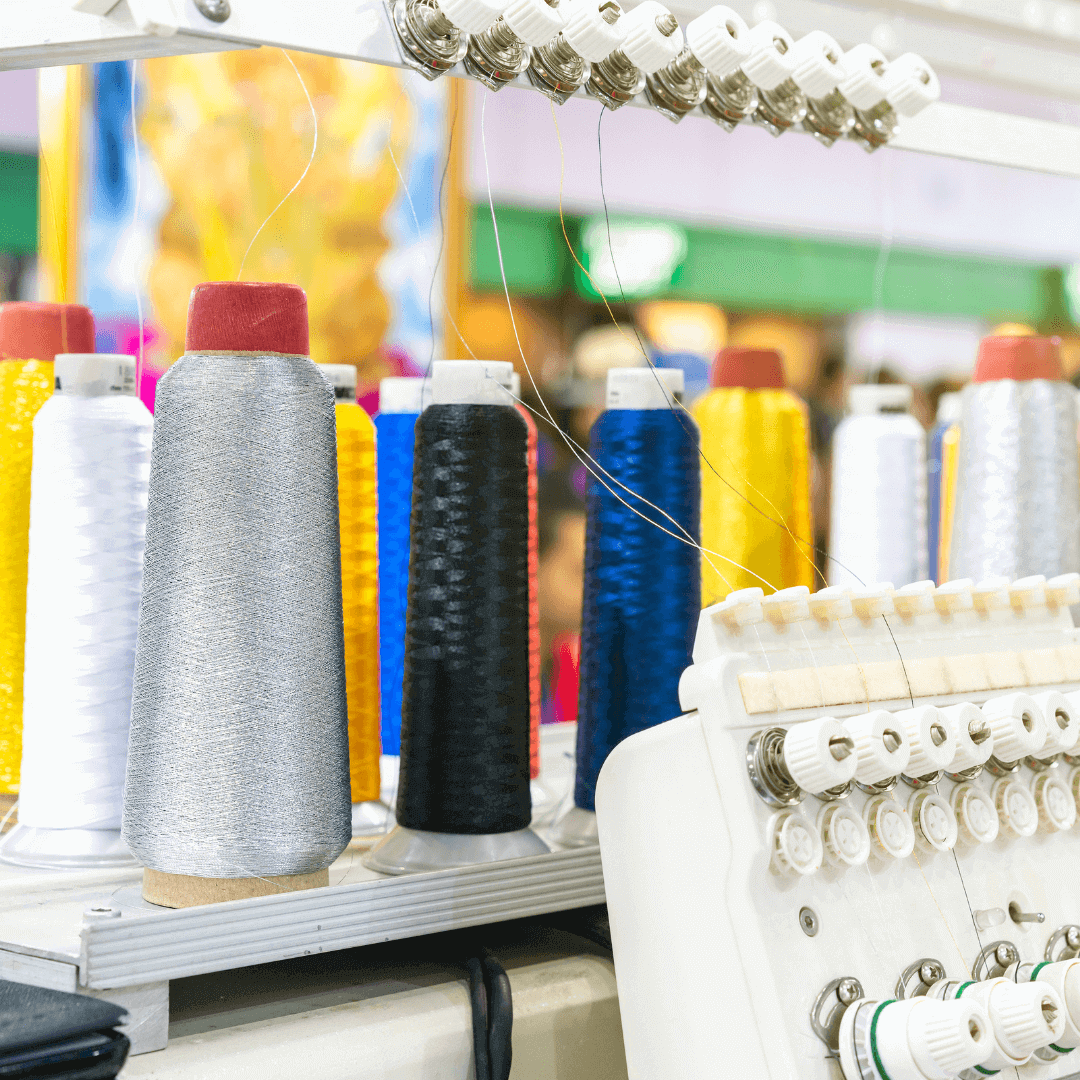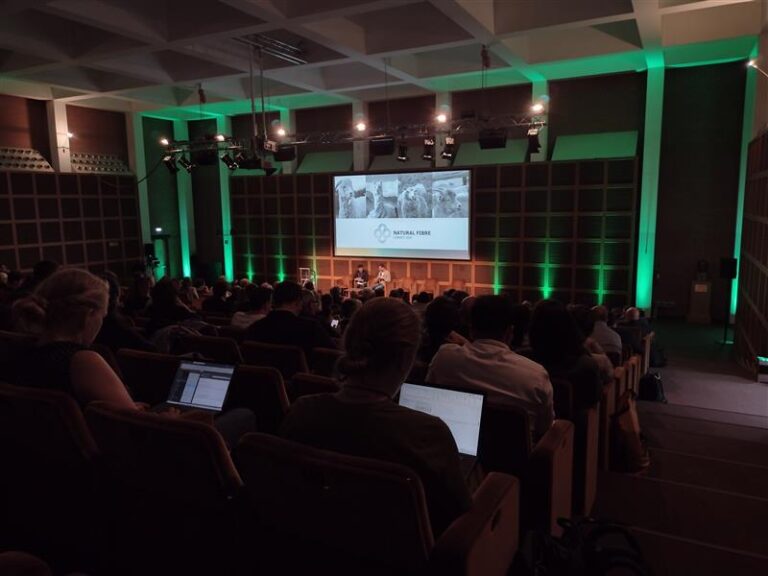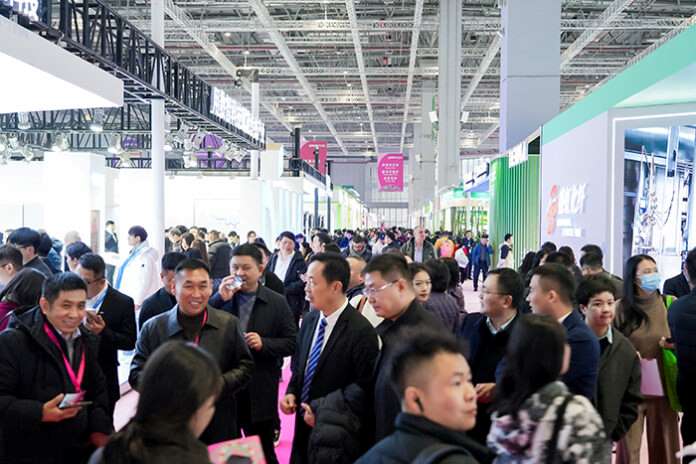FW
Specialised denim trade show, Bluezone is set to start in Munich on September 1 and 2, 2015. The show has registered a record 80 exhibitors, for the first time. Prosperity Textile, Kuroki, Azgard Nine, Advance Denim and Intex are some of the newcomers that will participate in the show. This year, the show will also host denim-related fabrics such as, flats, corduroys, mill-washed fabrics and accessories, apart from presenting international top denim manufacturers and finishers.
Monsieur T, German-French expert denim consultant has devised the new concept of the show this time. The Zenith Hall, which hosts the show, is set to turn into exoteric indigo laboratory that combines high-tech, comfort and function with magic, sexiness and enchantment.
Besides, there are special initiatives, which are a part of this new edition of the show such as, Tintes Egara, a Spanish garment finishing company that will stage live performances of batik and dyeing processes in the outdoor area of the show. Moreover, Monsieur T will present the latest trends, innovations and directions. Likewise, there are several others who will present new techniques and innovations.
An additional exhibition area adjacent to the ‘Kesselhaus’, which is located between the MOC and the Zenith Hall may also used for the show. This space, which will be a new anex in a modern new building, will offer extra creative space for selected fabric and garment suppliers. According to the show’s organisation, this huge space of approximately 2,500 sq. m. may be added to the February 2016 edition of Munich Fabric Start.
Fiber project by Green Initiatives has got two new sponsors recently. Arup Shanghai is an engineering consultancy firm and has been associated with Green Initiatives for a long time. The firm is involved in sustainable environmental activities on a global scale with a specific focus on leading edge sustainable design. The Director at Arup Shanghai, Michael Kwok, said the firm is really happy to be a part of the initiative, promoting the donation of old clothes for recycling. He himself was interested in doing so however, he found no channel and was unable to go ahead.
The other sponsor, Schneider Electric, is a multinational energy company, having interest in the areas of energy management and automation. The firm has promised to implement the project at their office in Pudong. Working on a global scale, Schneider Electric helps businesses to bring energy efficiency in their workplaces. It has over 1,000 employees in this campus. Under the project, Green Initiatives has placed bins in the campuses.
With five sponsors in Shanghai, the initiative aims at mitigating the impact of hazards to the environment from textile and clothing waste. Launched in December 2014, the project is a community-focussed and volunteer-run initiative.
Linking prices of RMG goods with the wages of workers, Bangladesh Prime Minister Sheikh Hasina has said buyers from developed countries should raise the prices of RMG items if they are really concerned about the welfare of garment workers in the country. She said garment workers would get higher wages only if the products they manufacture get a good price in the market.
Praising her government’s efforts in improving the condition of workers, Hasina stated that they have taken a number of steps for the welfare of workers. The minimum wages of garment workers are already up from Tk 1,600 in 2009 to Tk 5,300 now. The UK government has been quite appreciative of them for achieving millennium development goals (MDGs). The safety measures taken after the Rana Plaza collapse have also been praised immensely. The people of Bangladesh are hard working and touching new milestones all they need is a chance to perform, she added.
The textile industry in Nigeria will have a planned bailout, which was recently announced by the Central Bank of Nigeria (CBN). This is to diversify the economy and create job opportunities for the swarming population. Godwin Emefiele, CBN Governor made the announcement to key players in the industry. Emefiele stated that the funds would be released in a single-digit interest rate. The tenure of the loans would also be lengthy for stakeholders in the cotton, textile and garments segment, he added. The Governor also expressed that now, imports from Asia were completely dominating a subsector, which once employed over a million Nigerians. The Central Bank is now working together with the industry for complete solutions for long-term sustainable development of the sector. This is being done under Emefiele’s leadership.
CBN’s move is in the right direction, especially, now when Nigeria’s dependence on oil revenue will no longer sustain the country’s economy. In good times, Nigeria’s textile industry was a money-spinner for manufacturers, source of income for the people and was also a reliable source for the country to earn foreign revenue. For a flourishing country in textiles, which saw a growth of 67 per cent in 1991 and hired about 25 per cent workers in the manufacturing sector, most companies have either shut shop or are under performing. This is because of the unfavourable business environment, inconsistency in implementing government policies and absence of major indices of production in the sector. Encouragement to cotton farmers must be extended, zero per cent interest rates to be repaid after 15 years or more, and other such measures, need to be taken by the CBN to safeguard the country’s textile industry.
Myanmar has set a minimum wage for the garment industry. Once a thriving industry, Myanmar’s garment sector was hit hard by sanctions imposed by the United States, stripped of trade benefits and abandoned by brands who feared the reputational risk associated with the former junta. In a bid to change this, Myanmar lawmakers passed a minimum wage law in 2013, but negotiations between employers, trade unions and the government were delayed by garment workers' strikes and threats from garment factory owners - many from China and South Korea - to close if the minimum wage was set too high.
Myanmar’s new minimum monthly pay gives it a competitive advantage over thriving garment makers such as Vietnam and Cambodia. The approved wage would apply to workers across all sectors, but exclude small and family-run businesses that employ fewer than 15 people. The wage will come into effect on September 1. The move is likely to boost investment in the country's garment industry. Myanmar exported $1.5 billion worth of clothes and materials in 2014, up from $1.2 billion the previous year and $947 million in 2012. The country’s economy is expected to expand about eight per cent in the current fiscal year.
Texworld, an international textile trade fair will be held in France from September 14 to 17. Texworld brings with every edition a vast spread of fabrics, cotton blends, woven and knit wear, silk fabrics, functional fabrics, laces and ribbons, organic fabrics, jute textiles and processes apparels. With assurance of the best quality trims, fabrics and accessories, the fair gives apparel industry professionals the best in sourcing opportunities as exhibitors come here from far and wide with their best. Around 14,000 visitors are expected. Among the visitors are garment and fabric manufacturers, textile retailers and wholesalers, chain stores, department stores, agents, designers.
Texworld reflects the dynamic prêt-à-porter from the world of fashion. With exhibitors from around the world, this fair has now become an indispensable business platform and order fair of the industry. It connects suppliers, buyers and designers. The event focuses on innovative and creative clothing, fabrics and materials and impresses with innovative structures, material mixes and various color palettes.
Some 600 exhibitors will be present. Products are showcased by way of well choreographed fashion shows. Among the products exhibited are: linen, hemp, wool, denim, cotton and cotton blends, fibers, functional fabrics, silk, embroidery, lace, trims and accessories.
www.texworld.messefrankfurt.com/
Pakistan may impose a 10 per cent regulatory duty on bulk export of raw and grey cotton. Another proposal is that sales tax rebates for businessmen should be given in the shape of subsidy on electricity and gas bills. There is a view that tax to GDP ratio at 9.5 per cent was too low and there was a need to bring non-filers into the tax net. Withholding a tax of 0.3 and 0.6 per cent on bank transactions would bring more non-filers in the tax net.
Reduction of taxes on imports is expected to discourage the smuggling of tea and other items. Businesses want a reduction in the sales tax rate in Pakistan. They say it’s too high and leads to tax evasion and other illegal means to avoid it. Since Pakistan’s problems were too many, but resources were few, it was necessary economic issues are resolved in consultation with the business community. Taxation policies, they say, are a major hurdle in promoting exports.
Businessmen in Karachi say they give 65 per cent of the country’s taxes and contribute 25 per cent in GDP but get nothing much in return. Businessmen want an enabling business environment, with a better law and order situation and a corruption-free environment.
US retailers are renegotiating with their Chinese suppliers to take advantage of lower manufacturing costs after China devalued the yuan. Earlier this month, China devalued its tightly controlled currency in an effort to boost growth and help flagging exports. The nearly two per cent cut will make imports from China cheaper. The Chinese currency is down 3.2 per cent versus the dollar so far this year.
Cheaper yuan gives retailers a chance to buy more with dollars, with a knock-on effect in other supplier nations eager to remain competitive. After China’s move, Vietnam devalued its currency by one per cent. Most US retailers have dollar-denominated annual contracts with provisions that allow them to renegotiate if the currency moves outside a pre-established range. Some retailers will reap benefits immediately by exercising those clauses while others expect to enter next year’s contracts with a stronger bargaining position.
Mexico, one of the largest trading partners of the US which rivals China in the global sourcing game, stands to benefit substantially more than others from the Chinese devaluation. Because the Mexican peso is down more than the yuan, buyers are more likely to start sourcing more from Mexico. Peso has depreciated 12.5 per cent so far this year. The Canadian dollar has fallen 12.1 per cent while the euro has slipped seven per cent year-to-date against the dollar.
Used clothing imported in the garb of garments, unstitched cloth under red channel, will be examined 100 per cent by the Federal Board of Revenue (FBR). This will help facilitate the textile sector and remove apprehension about this, along with quick payment of duty drawback and valuation ruling for used cloth. Sources say the FBR Model Customs Collectorates (MCCs) have been issued instructions by the FBR on textile-related issues after a meeting with the All Pakistan Textile Mills Association (APTMA).
Key measures regarding the textile sector have been implemented at the FBR’s field formations level after the instructions. The FBR informed customs collectors about a meeting with APTMA by the Advisor to Prime Minister on Revenue in FBR, wherein, the import of unstitched cloth and new garments in the garb of used clothing was agitated by APTMA. Thus, the collectorate should place any unstitched fabric and or new garments that may be concealed in the used clothing, under red channel for hundred per cent examination and the Board should be notified about this immediately.
The Model Customs Collectorates have also been instructed that the valuation of used cloth also comes under this and that the matter may be looked into for fixing a fair import value. Special instructions have been issues to the Collector of Customs, Faisalabad to speed up the payment of duty drawback to the textile exporters. Besides, the value of foreign origin imported cloth would also be revisited.
To facilitate nonwovens fabric suppliers’ expansion in China, where imports of such products jumped 128 per cent from 2000 to 2013, this year Messe Frankfurt (HK), is set to launch a new initiative. The China International Nonwovens Expo & Forum (CINE- supported by Techtextil) from October 14-16, 2015, will be launched by the German exhibition company’s Asia Pacific branch. To be held in Shanghai Mart, the three-day event combines a trade expo and industry forum.
Senior general manager, Wendy Wen is optimistic about the continuing potential in China’s nonwovens market as imports grew from 61,400 to 140,000 tons between 2000 and 2013. This momentum will continue in the coming years, she feels. Many nonwovens exhibitors were confident that, by participating in the event, they will be able to expand their business in China, where imports of such products were high in demand, Wen added.
The unit price of imported nonwovens reached $6.1 per ton in 2013, which is 35 per cent higher than in 2007, as per statistics complied by the China Nonwovens & Industrial Textiles Association. A parallel forum will be a platform for show participants to learn about all-round information of worldwide nonwovens market apart from providing sourcing options to buyers.

